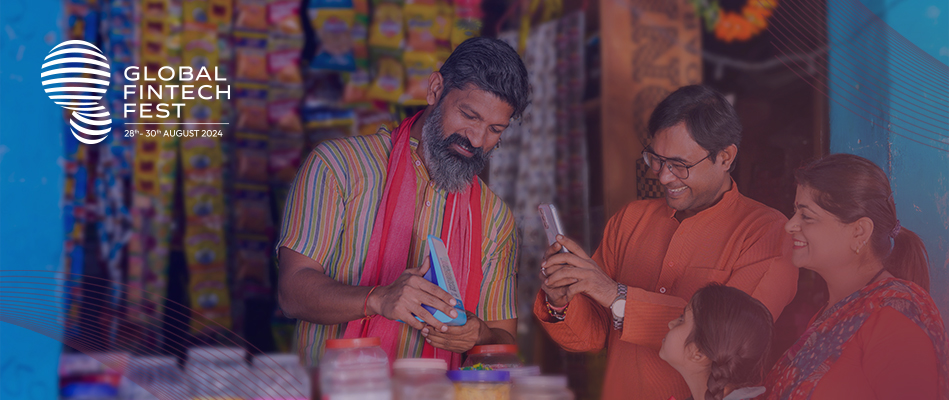
- May 09 2025
Celebrating a Decade of Innovation in Financial Technology: India's Journey to Greatness
The global financial technology landscape is changing at an unprecedented pace, and India's fintech revolution is an epitome of extraordinary innovation and inclusion. The financial landscape of the country has changed significantly over the last decade in more ways than one to attract attention from around the world and set new standards that inspire developing nations around the globe.
Genesis of Financial Inclusion
India's fintech story began with the inception of the Jan Dhan Yojana in August 2014. The Indian prime minister, Narendra Modi, took a very ambitious decision to bringing every Indian household under formal financial services. While many raised doubts about the initiative, others expressed concern about common problems that the new scheme would face. However, within just four months, it had added 130 million new bank accounts. This rapid growth not only bridged the financial divide but laid down a foundation for a much more inclusive financial ecosystem.
Fintech Contribution towards Economic Growth
The fintech sector has been a critical driver of India’s economic growth, particularly during challenging times like the COVID-19 pandemic. Innovations in financial technology have kept the economy resilient and dynamic, contributing significantly to India’s rise as the world’s fifth-largest economy. The adaptability and innovation skills of this sector have been useful in sustaining the economic growth trajectory.
A Litmus Test of Technology and Belief
The India Stack—the revolutionary suite of digital infrastructure includes Aadhaar (biometric identification), UPI (Unified Payments Interface). This all-encompassing system has processed $420 billion in transactions, showcasing the power of technology in transforming financial services. The India Stack is a benchmark globally for low cost/high-impact solutions which drive financial inclusion and economic empowerment.
India's Fintech Renaissance
While fintech goes beyond mere transaction-based outcomes, examples such as Sankul Capital that offers finance to rural women and MicroNsure, service providers to migrant workers, need to be considered as measures taken up by fintech toward social impact and inclusion into the mainstream thinking of bank policies. From better access to finances, a platform also enhances the voice of socially marginalized communities and, therefore, brings hope to fintech in changing society for good.
Empowering Women Through Financial Technology
There is a need for increasing women as the banking system and the fintech ecosystem expands. Tapping into support systems for women entrepreneurship as well as increasing financial literacy is pertinent to bridge the gap and gain participation in the formal economy.
“While great strides have been made in financial literacy, I do believe there are still opportunities; particularly through greater awareness of insurance, pension schemes, and how financial business models or credit scores can help young entrepreneurs, budding startups, agriculturists, small hawkers, and even small and micro businesses.”
-
Shri Piyush Goyal, Minister of Commerce & Industry at GFF 2024
GIFT City:An Opportunity that Needs to be Capitalized
The Gujarat International Finance Tec-City (GIFT) is a world-class financial destination for terms of tax advantage and to set up operations. Stakeholders must explore the numerous opportunities available at GIFT City to unlock maximum strategic benefits and sectoral growth.
The Gujarat International Finance Tec-City (GIFT) stands as a premier global hub for financial innovation, offering significant tax advantages and a conducive environment for establishing business operations. Stakeholders are encouraged to explore the diverse opportunities at GIFT City, unlocking unparalleled strategic benefits and fostering sectoral growth across industries
AI, Neo-banking, and Digital Currencies
Artificial intelligence, neo-banking, and currencies like the digital Rupee will revolutionize the fintech industry. Ethical AI can significantly improve financial security and efficiencies. Neo-banking and digital currencies will open up new avenues toward financial inclusion. Adoption will be crucial in sustaining the leadership position in global fintech advances.
Financial Literacy and Inclusion
Increasing awareness on financial products, insurance, pensions, and credit scores as fintech grows is pertinent. Education from fintech professionals targeting the underserved adds much value in economic empowerment and stability.
Digital Public Infrastructure
India’s UPI and ONDC have set new global standards for digital finance. In permitting cross-border usage of financial technologies like UPI and ONDC, India can facilitate cross-border transaction and deeper financial integration. Export of our digital innovations is part of the larger goal of greater financial inclusion and efficiency globally.
Leadership and Management Lessons
The success of these initiatives is also a reflection of effective leadership and management. Direct monitoring of executive functions on the part of Prime Minister Modi established new precedents for program implementation. His personal commitment to reviewing daily progress, as well as his direct interaction with field operatives, ensured that were the targets exceeded expectations. This leadership model offers valuable lessons in managing large-scale programs and driving transformative change.
The Future
The fintech sector will be central to India's desire to become a developed country. Continued innovation, inclusivity, and passion will be essential in ensuring that financial services reach every corner of the country. Areas like AI, neo-banking, and digital currencies are poised to drive further transformation and enhance financial efficiency.
While celebrating a decade of fintech success, we must acknowledge the overall effort of technologists, policymakers, and industry leaders who have made this possible. The future is full of potential to shape a brighter and more inclusive financial future for all.
Frequently Asked Questions








